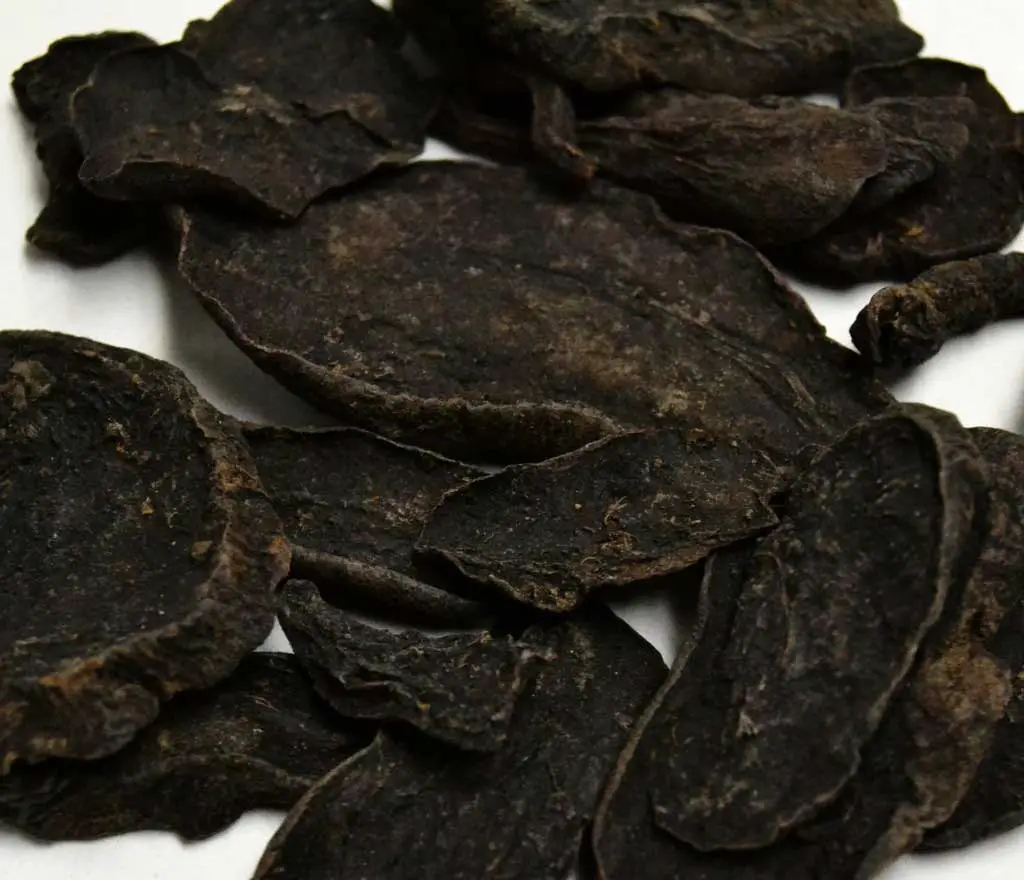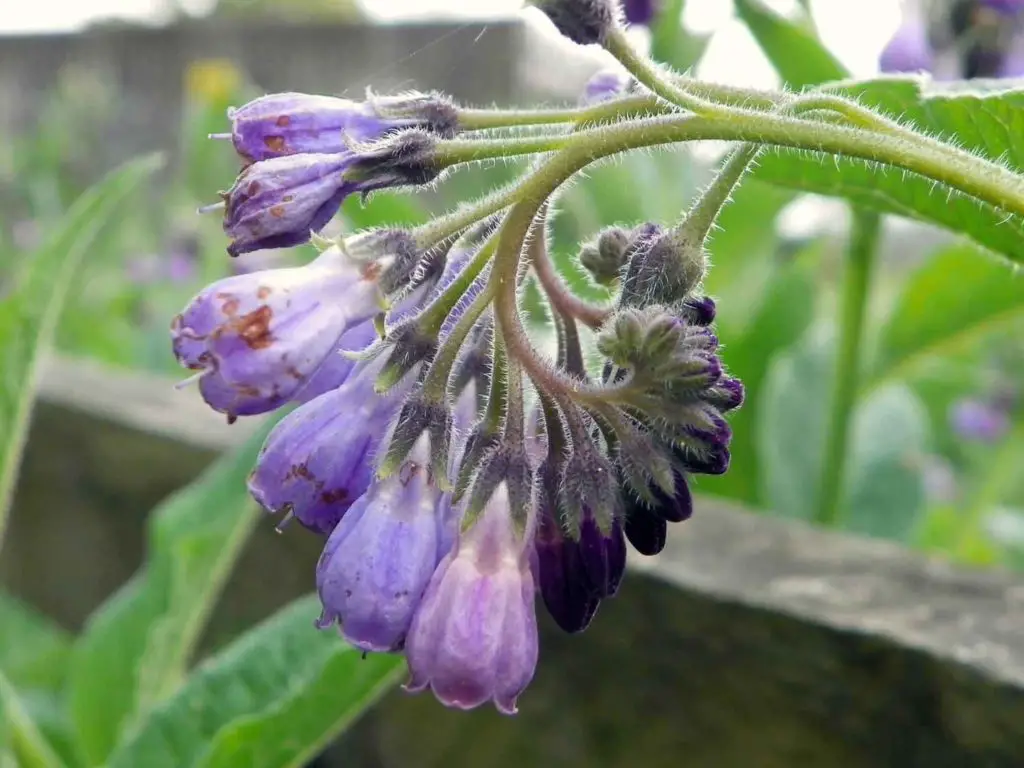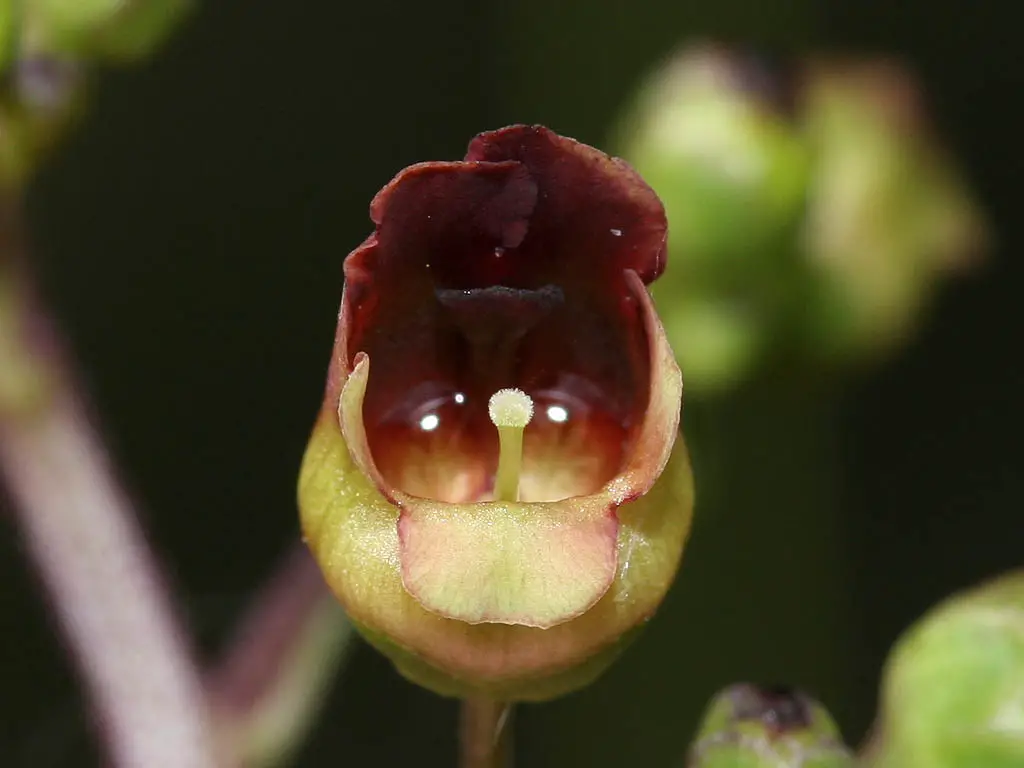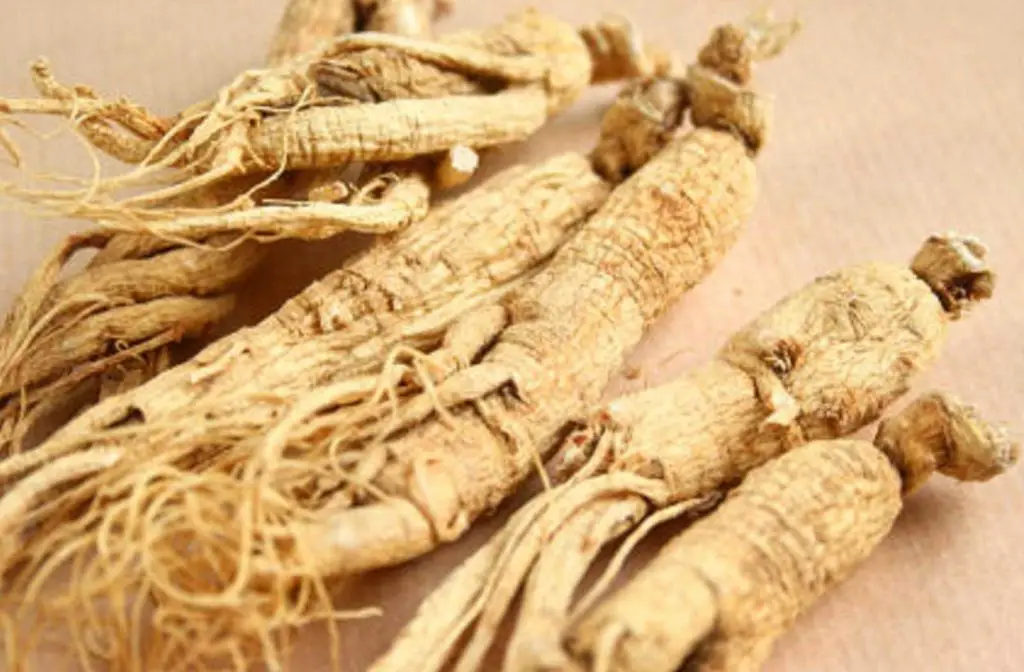What is He Shou Wu?
He Shou Wu, also known as Chinese knotweed, fleeceflower, or Fo-Ti (not to be confused with the unrelated product Fo-Ti-Tieng) is an herbal remedy from Traditional Chinese Medicine. It is derived from the root of the plant Polygonum multiflorum Thunb. (synonym Fallopia multiflora or sometimes Reynoutria multiflora), a climbing vine native to China. The plant can be identified by its large, heart-shaped leaves and white or pink flowers. In the past, it could be found growing on mountain slopes, rocky crevices, and other similar areas, but it is now cultivated worldwide. The name “he shou wu” means “the black-haired Mr. He” in English and comes from a legend explaining how the plant became a common health tonic. In the legend, a man realizes that he is unable to have children, and is thrown into a deep depression. He quickly ages, his health deteriorates and he becomes prematurely grey. One day, Mr. He finds an interesting vine that he has never seen before, which then a monk shows him how to use. After consuming the plant, Mr. He finds his health and vigour restored, and his hair is returned to its original black colour. He marries, has many children, and lives to age 160.
Although most of the Polygonum multiflorum plant is technically edible, only the roots, which have a sweet yet bitter and astringent taste, are used medicinally. After a plant has reached the age of about four years, its tuberous, starchy roots are harvested, usually in the fall. The unprocessed roots (often marketed as “White Fo-Ti”) are sometimes used, but frequently the cured roots (marketed as “Red Fo-Ti”) are the product available to consumers. Some suppliers claim to cure their he shou wu using the traditional method – steaming the roots in a mixture of rice wine and black soybean juice until the liquid has been fully absorbed.
He Shou Wu Benefits and Uses
He shou wu was traditionally thought to lengthen the lifespan, cure infertility and erectile dysfunction, treat tuberculosis, and heal infections. It was also thought to be beneficial to the kidneys, which in Traditional Chinese Medicine are believed to control the hair – hence its reputation for reversing grey hair and promoting growth. Although the actual effects of the plant may not be so far-reaching, here are some of the potential benefits of taking he shou wu:
- Anti-inflammatory and anti-oxidant effects: he shou wu contains compounds such as stilbenes and flavonoids, similar to the beneficial compounds in red wine.
- Reducing cholesterol levels: he shou wu has been shown to reduce blood cholesterol in both animal and human trials.
- Promoting brain health: A Chinese 13-herb mixture called shou xing bu zhi, which includes he shou wu, was studied for its beneficial effects on slowing aging in mice. He shou wu has also been studied in relation to treating Alzheimer’s and Parkinson’s disease.
- Treating alopecia: In several Chinese studies, improvement was seen in alopecia patients after going on an herbal drug regimen that involved he shou wu.
- Occasionally, the plant is put in skin creams, or directly applied to the skin, for infections and muscle soreness.
Overall, he shou wu is best known as a simple “energy tonic” for promoting health among older people. Over 100 chemical compounds have been isolated in he shou wu, not all of which have been fully examined. Some of them, such as anthraquinones, may have simultaneous beneficial and harmful effects on the body (see below). Because he shou wu is usually taken over a long period of time, you should consult with your doctor before consuming it.
He Shou Wu Side Effects and Safety
Generally, he shou wu is considered a safe herbal treatment with few side effects, although in rare cases, they can be serious. Some of the more common side effects are diarrhea, nausea, and abdominal discomfort, which are caused by the compound emodin, a natural laxative. Reportedly, the “white” uncured version of he shou wu is more likely to cause diarrhea. Those with gluten sensitivities should consider avoiding he shou wu. More rare side effects include skin rashes and numbness of the limbs, which have occurred from consuming too much of the herb. He shou wu has a moderate estrogenic effect (compounds in the plant mimic estrogen), so it should be avoided by women suffering from diseases such as ovarian, uterine, or breast cancers, as well as anyone who could be adversely affected by this. Finally, the anthraquinones in he shou wu have been known to cause liver damage in rare cases, so those with existing liver diseases should avoid taking it. Jaundice, abnormal liver function, and hepatitis have all been reported, but luckily in most cases these conditions are self-limiting, and patients recover once they stop taking the herb. However, if you have such a reaction to he shou wu, you should not take it again. As with many herbal remedies, pregnant and lactating women should consult with a doctor before taking he shou wu, or simply avoid it.
How to take He Shou Wu
The mass-market of he shou wu in North America is typically found in powder or capsule form, however tinctures or the root itself can sometimes be found. Teas are not as common, but can be made from simmering the root in water. Capsules or powders provide availability and convenience, with the possibility for powders to be mixed into foods and drinks, but if the strength of the dose is a concern they should be used with care.
Did you know? He Shou Wu aka “The Energy Tonic” is thought to lengthen the lifespan traditionally. Get it = > https://t.co/OeGTcL23SP
— MedicinalHerbals (@MedicinalHerbal) February 27, 2017
He Shou Wu Dosage
There is no standard approved dosage of he shou wu. A summary on the website drugs.com identifies 9 to 15 grams of unprocessed root as a standard daily dosage, but notes that there are no clinical studies to confirm this as safe. Subhuti Dharmananda, director of the Institute for Traditional Medicine in Portland, Oregon, notes that 9 to 15 grams of the root, boiled in a non-metallic pot, was recommended to make tea; however he also refers to 15 grams as “a large dose.” Many of the powder and capsule variants of he shou wu will include dosage information. For example, a survey of some varieties selling online shows a range of 450 to 610 milligram capsules, with daily dosages reflecting the varying amount of herbal extract. To reduce the risk of unpleasant side effects, begin with a low dosage to see how your body reacts.
Should I take He Shou Wu?
When searching for information on he shou wu, it is common to initially find warnings about liver damage and other hazards, but these should not necessarily scare you away from taking the herb. Adverse reactions are very rare and generally uncomplicated, and people have continued taking he shou wu for centuries. As with all herbal treatments, take care in studying your risk factors for side effects, and consult with a doctor if you are concerned. Since he shou wu is traditionally supposed to be taken for long periods of time, start with a low dose and do not expect immediate results from it. Additionally, make sure your he shou wu comes from a trusted herbalist or seller, as cases of substitution of other herbs have been reported. Following these guidelines, he shou wu should begin improving your health in several weeks to months.
References:
http://www.efloras.org/florataxon.aspx?flora_id=2&taxon_id=242321909
http://www.drugs.com/npp/fo-ti.html
https://www.jadeinstitute.com/jade/herbal-detail-page.php?show=66&order=common_name
http://www.sciencedirect.com/science/article/pii/S0378874114007922






Most herbs start to lose their integrity when produced in over 20:1 extract. My recommendation is 16:1 with 8% stillbenes. I’ve been using this product since 2003 and so have my clients.
Thank you for that information!
“Most of the … plant is edible”
What part is not?